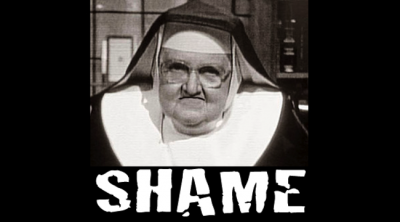A few days after what he thought was a blissful marriage Samuel Kiletei was frustrated that his bride completely ignored her obligations as a wife.
She spent all her time playing with children in the village.
“I faced a lot of challenges because she did not know what it meant to be a wife and her duties to her husband. I used to find her playing with other children,” he recalled when Capital FM News met him in Ilaramatak in Narok South Sub-County.
It did not occur to him, that his newly acquired wife would not live up to his expectations.
She was eight years old and he was 25 then.
He did not see anything wrong with that.
After all, it was the culturally accepted practice of his Maasai community.
Like other men in his community, he married the girl to satisfy his ego and fulfill the societal expectations.
“When I married her, I did not see her as a wife, I saw a child. I decided to feed her until she could look like a wife. I fed her for two years. I slaughtered goats and cows and gave her soup,” he narrated.
Gladys*, vividly remembered that she was forced to marry an older man when she was about 14-years-old.
Agnes* said she was too young to even know her age when her parents sold her off to a family friend.
The freshest case of underage marriage in Ilaramatak was only last week.
An eleven year old girl told us she was miserable because her best friend who was her desk mate was last week married off to a man she did not know.
“Tulikuwa tu hapo nyumbani tunacheza akaitwa akambiwa aingie kwa gari, akaingia. Sisi hatukujua alienda wapi. Ndio mama yake vile alirudi kutoka huko akatwambia.” (We were playing at home when she was called and told to enter a car. We didn’t know what was happening. When her mother came back from her new home, that is when she told us that she had been married off).
It was for these reasons and more that World Vision together with other stakeholders converged in Ilaramatak in Narok South Sub-County on Wednesday to launch the ‘End Violence Against Children Campaign’.
During the launch one could not fail to notice the big number of young mothers – most of them barely 15 – streaming into the event with their children tagging along.
They were denied the right to enjoy their childhoods, right to education and were never given the opportunity to get married to men of their choice, at the right time.
To them, marriage is a constant reminder of the shameful, demeaning and horrific experience that to date they pay a heavy price for; a fault that was not of their own making.
In Kenya, the eyesore that is Female Genital Mutilation (FGM) goes hand in hand with early marriages because after undergoing the cultural cut, girls are initiated to womanhood.
Kenya prides itself as a country with stringent laws that protect children from practices such as FGM and early marriages.
But according to the 2014 UNICEF report, ‘one out of four girls in Kenya is married before her 18th birthday’.
The 2014 Kenya Demographic and Health Survey further states that the prevalence of FGM is 21 per cent for women between 15 to 49 years of age with a red flag that communities that practice it, do so before the girls reach 18 years.
During this year’s celebrations to mark the Women’s International Day, World Vision National Director, Kenya John Makoni after engaging with girls from Ilaramatak knew that the society stands accused if it does not stand up to defend the girl child from petrifying experiences of FGM and early marriages.
Responses from the girls when he asked who a role model mother should be left his heart bleeding.
“They challenged me and told me, ‘we are not going to tell you about the model mother’,” he recalled.
“We are going to tell you about the modern mother that is sending us to be married before we are eleven years. We are going to tell you about a mother of today who is using a big well sharpened knife to disfigure my body through FGM.”
It was an interaction that inspired his organisation to expand its partnership with other stakeholders including the affected communities, religious leaders, the government and other NGOs to employ initiatives that will restore the dignity of children by saving them from harmful treatment.
Through the End Violence Campaign, World Vision has employed a five year plan that envisages to involve the community and other players to speak out against violence on children by strengthening the legal enforcement provisions that will act as preventative measures as well as lead to successful investigation and prosecution of perpetrators with an emphasis on ending child marriages.
Through similar awareness events Kiletei now regrets his marriage to a child in 1980. He has used his mistake to condemn marriage of underage girls, an example that World Vision believes can be emulated across the communities grappling with similar dehumanising practices.
Expanding children’s services across the country, Makoni explained will require great input from the government which he said should allocate 25 per cent of its budget to children’s programmes

